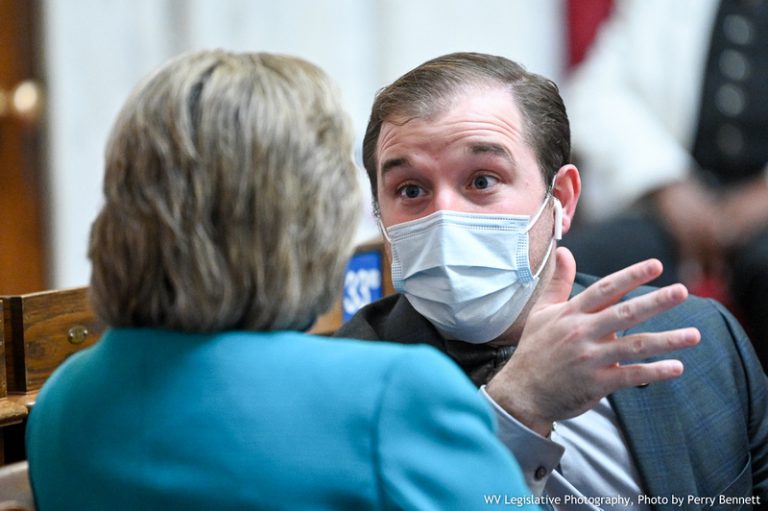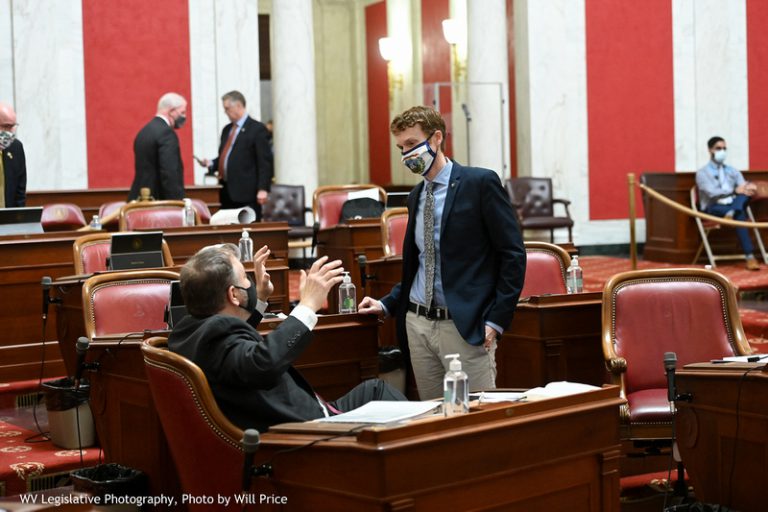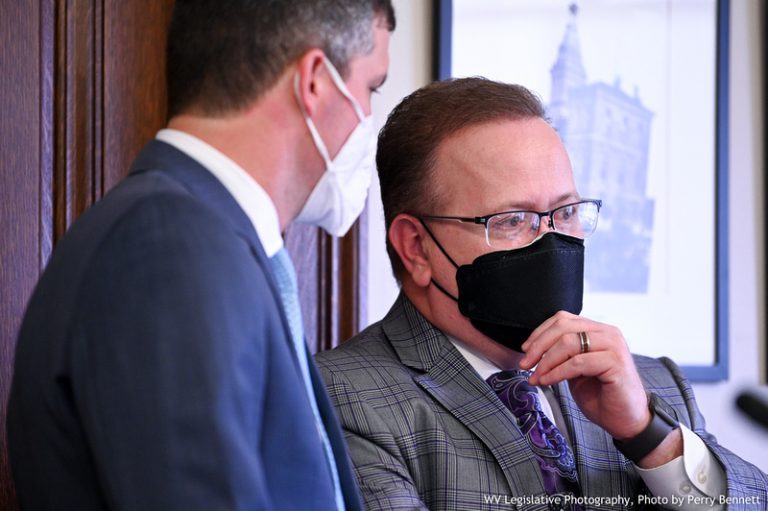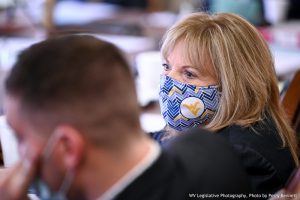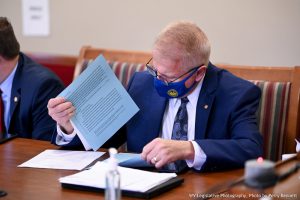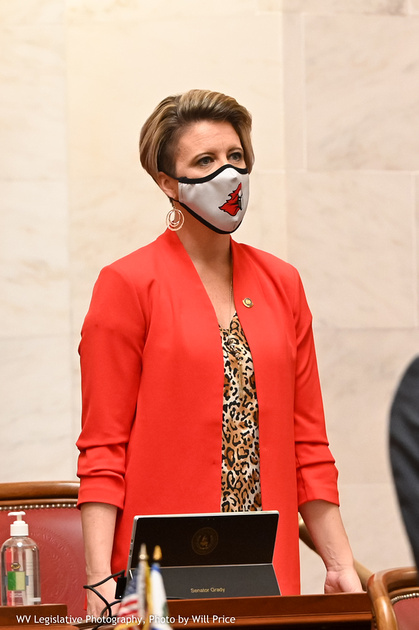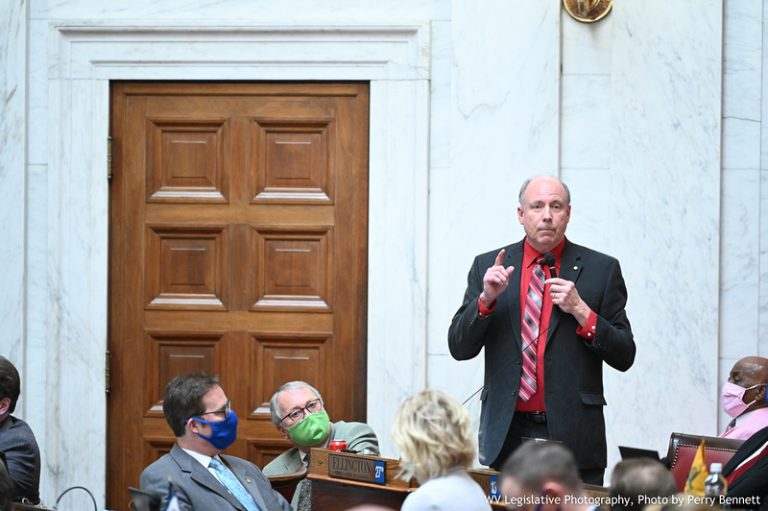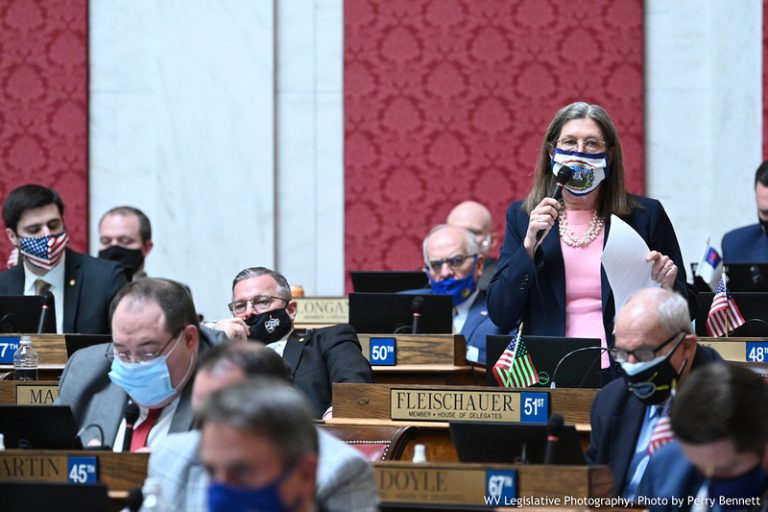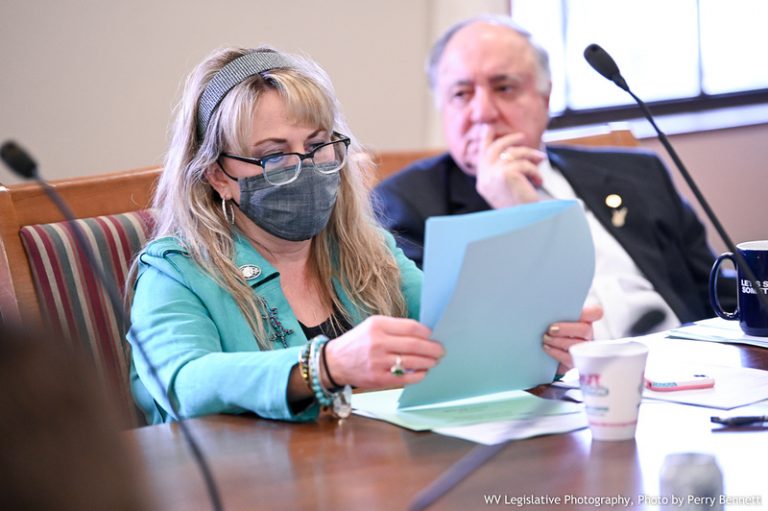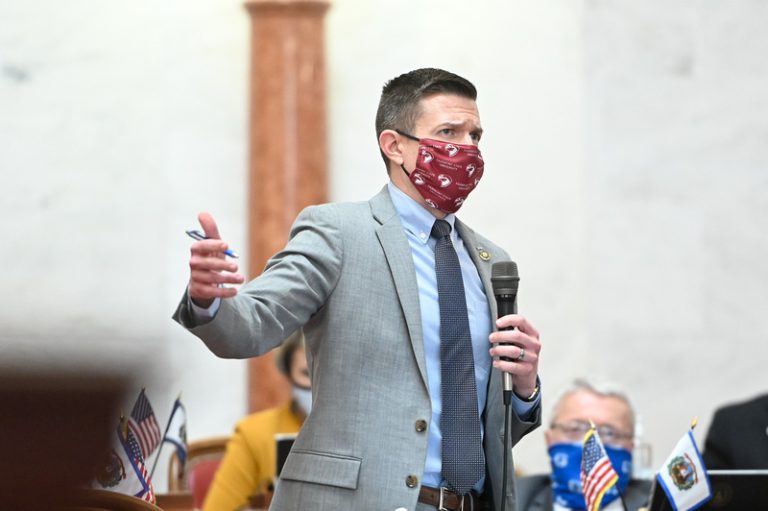As of Friday, March 26, 2021, 1307 bills have been introduced to the House. Of those bills, 137 have passed and advanced to the Senate.
House Bill 3130 eliminates the sunset prevision on towing rates.
House Bill 2914 removes the president of the historical society and the president of the historical association as ex officio voting members of the archives and history commission.
House Bill 2823 exempts buildings or structures used exclusively for agricultural purposes from the provisions of the State Building Code
House Bill 2808 removes salt from the list of “mineral” for severance tax purposes.
House Bill 2782 repeals domestic animal tax.
House Bill 2777 repeals municipal amusement tax.
House Bill 2742 provides authority to process an online driver’s license or ID renewal or reissue when an address update is needed. This would supersede current legislative rule.
House Bill 2633 creates the 2021 Farm Bill, which amends and updates code relating to agriculture.
House Bill 2499 reduces taxes for arms and ammo manufacturing.
House Bill 2496 changes appellate rights of property owners concerning valuation, classification, and taxability of real estate and personal property taxation.
House Bill 2174 is the West Virginia Monument and Memorial Protection Act of 2021.
House Bill 2920, a supplemental appropriation bill, adds funds from the Treasury to the Department of Health and Human Resources, Division of Health, Laboratory Services Fund.
House Bill 2899, a supplemental appropriation bill, adds funds to the Department of Commerce.
House Bill 2897, a supplemental appropriation bill, expires funds to certain accounts within the Department of Commerce.
House Bill 2829 provides for the amortization of annual funding deficiencies for municipal police or firefighter pension and relief funds.
House Bill 2796, a supplemental appropriation bill, expires funds of the West Virginia Development Office to the surplus balance of General Revenue.
House Bill 3010 extends the special valuation method for cellular towers to towers owned by person not subject to regulation to the Board of Public Works.
House Bill 2785 makes three changes: 1.) Parents make decision to remove their child from kindergarten program, 2.) Removes placement requirement to enroll in first grade for students who attend certain Montessori programs, and 3.) Requires that out-of-state students be placed in the grade from which they transferred.
House Bill 2760 amends the economic opportunity tax credit and the high technology manufacturing tax credit to provide more target and effective tax incentives for economic development.
House Bill 2630 requires the West Virginia DEP to pay back fines to political subdivisions if they make required upgrades or fixes in relation to those fines.
House Bill 2638, Mylissa Smith’s Law, creates patient visitation privileges during a pandemic.
House Bill 2195 requires the law-enforcement officer, within 24 hours of a vehicle crash, to share the owner/operator and insurance information for all the involved parties with all the other involved parties and/or their insurance agents.
House Bill 3215 amends the requirements to become an elected prosecutor.
House Bill 3177 removes outdated provisions and report requirements in education.
House Bill 3164 removes language that transportation is required to be charged with kidnapping.
House Bill 3045 deletes the July 1, 2023 sunset provision that would end a rebuttable presumption for a workers’ compensation benefits claim that a professional firefighter developed leukemia, lymphoma, or multiple myeloma arising out of and in the course of employment as a firefighter.
House Bill 2985 is the Second Chance at Life Act of 2021, which requires doctors to provide certain information when prescribing a chemical abortion.
House Bill 2874 extends the current veteran’s business fee waivers to active-duty members and their immediate family.
House Bill 2427 allows the Department of Health and Human Resources to create rules relating to behavior health center licensure.
House Bill 2029 relates to teacher preparation clinical experience programs.
House Bill 2028 exempts veterinarians from the requirements of controlled substance monitoring.
House Bill 3294 creates the Unemployment Insurance Program Integrity Act.
House Bill 3293 requires that a secondary student athlete’s participation in single-sex athletics be based upon the athlete’s biological sex as indicated on the athlete’s original birth certificate issued at the time of birth.
House Bill 3231 provides that public utilities not required to pay interest on security deposits held for up to eighteen months.
House Bill 3191 requires employers to notify retirants if their subsequent employment will negatively impact the retirant’s retired status or benefit.
House Bill 3137 accelerates the conversion of the transfer tax on the privilege of transferring real property from a state excise tax to a county excise tax,
House Bill 3107 declares the Post- Traumatic Stress Disorder diagnosed by a licensed psychiatrist is a compensable occupational disease for first responders and makes PTSD workers’ compensation coverage for first responders a voluntary program for employers.
House Bill 2953 clarifies that counties can hire firefighters as paid staff and to modify the existing procedures to include a referendum procedure by a county commission, as it relates to amending fire fees for counties.
House Bill 2792 allows new customers of natural gas to receive direct access from natural as supplies and modifies the ability of existing customers to receive direct access to natural gas service if the end user expands its existing service of 25 million cubic feet of natural gas per year or more.


